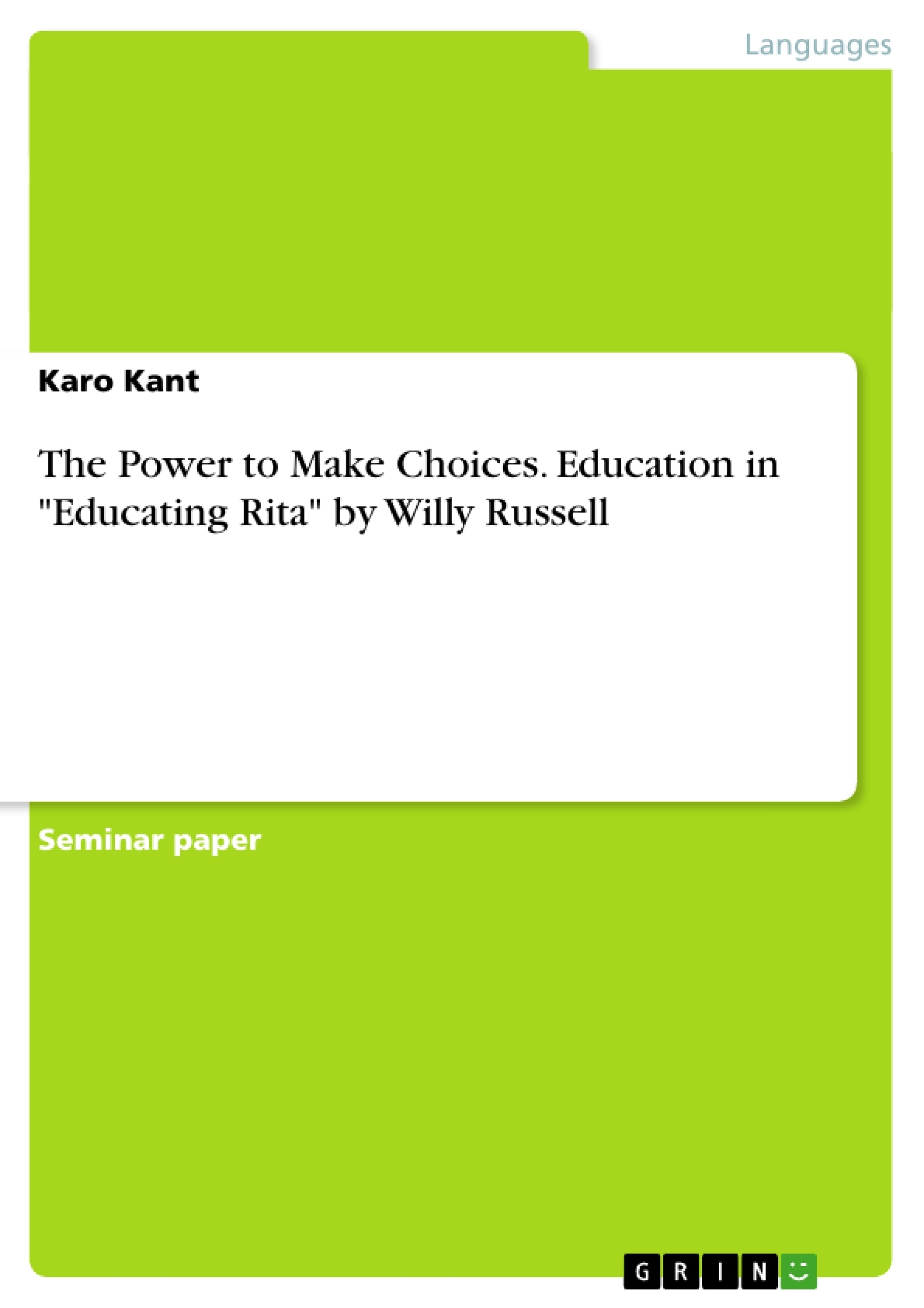Surrounded by traditions and habits of mind and action, working-class people have never received the chance to realize their potential. The working-class is defined by the relation of the status to manual occupations and limits economic standing as well as cultural ties and shared views (Roberts 3-4). The people's life, therefore, is prefabricated and follows strict traditions and habits. When Roberts says that "working-class women had learned when young that their place was in the home" and that "it was accepted by all that the ultimate resposibility for the home was theirs," (Roberts 125) it becomes obvious that, for example, the women's task is restricted to the kitchen work, the household, and to raising the children. Women know from their childhood that to fulfill these tasks is their destiny and because of missing possibilities and the argument of traditional habits, hardly lots of women and men are trying to escape from these circumstances. Traditions and conventions in this context can also be seen as external influences that restrains individuality. Being a member of the working-class means contribution and passing on a tradition.
Furthermore, working-class members feel a certain kind of repletion according to material needs which keeps them from changing the status quo. Status quo should be defined as the situation as it is now, or as it was before (Oxford 1500). Being different from somebody else, i. e. in this case from the community, is not accepted. A person always has to be a member of the group and act like one, whereas individuality is deprecated by the others (Kugler-Euerle 92). Since education is seen as useless and in contrast to the conventions, educated people distinguish themselves from the community as a whole.
The following will be focused on the term Education and the implication of escaping from the boundaries of working-class members to achieve independence and individuality. The convictions and the strength to put up with the strain of traditions and conventions will be exemplified through Educating Rita by Willy Russell.
Table of Contents
- 1 Introduction
- 2 The Working-Class
- 3 Education as a Means of Escape
- 4 Educating Rita
- 4.1 Overcoming Boundaries
Objectives and Key Themes
This text explores the limitations faced by working-class individuals, specifically focusing on the role of education as a means to achieve independence and individuality. The text utilizes the play "Educating Rita" by Willy Russell to exemplify the struggles of overcoming societal constraints and pursuing personal growth.
- The influence of tradition and convention on working-class life
- The lack of value placed on education within working-class communities
- The role of education in promoting self-realization and escape from societal norms
- The challenges individuals face when seeking education, particularly from family and community
- The contrasting perspectives of working-class individuals who embrace tradition and those who seek personal growth through education
Chapter Summaries
The introduction examines the inherent constraints faced by working-class individuals, where tradition and convention limit their opportunities for self-development. It argues that the lack of education within these communities reinforces a sense of complacency and prevents individuals from breaking free from societal expectations.
Chapter 2 delves into the characteristics of the working-class, highlighting their sense of satisfaction with their status quo and their contentment with their existing lives. This contentment arises from a shared history of struggle and a sense of community based on family ties and local solidarity rather than individual ambition.
Chapter 3 emphasizes the transformative potential of education as a means of escaping these societal constraints. It explores the concept of education as a catalyst for personal growth, autonomy, and critical thinking. The chapter underscores the challenges individuals face in pursuing education due to societal expectations and familial pressures.
Chapter 4 focuses on the play "Educating Rita" by Willy Russell, introducing the character of Rita, a hairdresser who seeks to improve her life through education. This chapter explores the specific challenges Rita encounters in breaking free from the expectations of her working-class background, including her husband's opposition to her education and the social limitations of her community.
Keywords
The primary keywords and focus topics of this text include: working-class, tradition, convention, education, self-realization, individuality, escape, social constraints, personal growth, community, autonomy, and societal expectations. These terms encapsulate the primary themes and concepts of the text, exploring the role of education in empowering individuals to break free from societal limitations and achieve personal growth.
- Quote paper
- Karo Kant (Author), 2011, The Power to Make Choices. Education in "Educating Rita" by Willy Russell, Munich, GRIN Verlag, https://www.grin.com/document/191122




